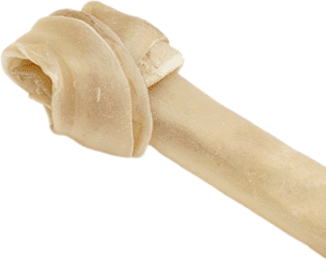


According to the American Society for the Prevention of Cruelty to Animals (ASPCA), an estimated 3.1 million dogs enter an animal shelter every year. Though the numbers are declining, it’s hard to think of even one dog abandoned, let alone millions left without a forever home.
And the root source of these strays and rescues? Often, it’s irresponsible breeders — also known as puppy mills.
Dogs from unscrupulous breeders have a difficult life ahead. Most of these puppies develop a plethora of problems like health and behavioral issues or increased fear and anxiety after experiencing poor living conditions at an early age.
Without enough time to care for their anxious pet or the financial ability to afford mounting vet bills, many owners decide to surrender their puppy mill dogs to a local animal shelter.
That’s why finding a reputable, trustworthy dog breeder is essential — you don’t want to put money in the pockets of breeders who contribute to the problem. Let’s look at the important distinctions between dog breeders vs. puppy mills and what to watch out for when searching for a forever pal.
Puppy mills are facilities that breed hundreds of dogs each year with the main goal of selling animals for a profit. Basically, money from sales is prioritized over a puppy’s health, well-being, and sanitary needs.
When a puppy mill dog reaches reproductive maturity, the facility begins the breeding process. Unfortunately, female dogs from puppy mills will be bred until they are physically unable to produce another litter.
The Humane Society estimates that 500,000 dogs are kept in puppy mills for the purpose of breeding. The facility pumps out as many puppies as possible and will abandon, surrender, or euthanize female dogs after their breeding years.
Puppy mill workers do not usually take the dogs out for potty breaks or exercise, so dogs do their business in their cages. In many cases, the spaces are not cleaned daily or often enough. All these variables combine into a breeding ground for bacterial diseases.
One disease that’s commonly found in the puppy mill population is parvo. Because the virus passes through infected feces, it spreads easily among dogs.
The parvo vaccine for puppies strengthens their immune system against the virus, which is highly contagious and fatal without proper treatment. However, puppy mills often sell the animals before administering the proper vaccines or any type of preventative care.
Puppy mills distribute puppies when they are young, adorable, and seemingly disease-free for high profits, so illnesses and hereditary disorders are not identified before the sale. That’s why, more often than not, pet stores won’t offer health guarantees as certified breeders do.
Once new litters of puppies can survive independently from their mother, the facility will ship a hundred dogs or more in one truck. In fact, 90% of puppies in pet stores come from the thousands of puppy mills spread across the United States.
They’re often intended for sale across the United States, and the living conditions in the shipment truck are similar to the puppy mill: It’s overcrowded and unsanitary with no opportunity for bathroom breaks. The ride is also very stressful, and because of the close quarters, pups have an increased chance of catching diseases like parvo.
For some, this ride will resemble freedom — maybe they will be adopted by a loving family through the windows of a pet store. But sick puppies will be rejected upon inspection from the buyers.
What happens to these delicate puppies when potential buyers reject them? We can’t say for sure. Maybe they are sold for a discounted price or returned to the puppy mill. Either way, unhealthy puppies that don’t receive immediate medical care can die from untreated illnesses.
Grey zone breeders, otherwise known as backyard breeders, are individuals who breed dogs at home and distribute litters of puppies within their community. You’ll likely find puppies from backyard breeders listed for sale on online marketplace avenues like Craigslist and Facebook.
It’s easy to identify grey zone breeders, but it can be difficult to tell if they have good intentions about a puppy’s health and well-being. Some backyard breeders love and care for their animals, but others see breeding as a way to make money.
So while grey zone breeders are better than puppy mills, there are some glaring red flags that could negatively impact their animals. Even so, here’s why you should always avoid working with backyard breeders or buying from puppy mills at all costs.
Backyard breeders have many reasons for breeding their dogs, but most of the time, their decision to breed is not in the best interest of their animals. Be aware of breeders who provide the following reasons for breeding:
Breeding dogs is a big responsibility that should not be taken lightly, and all of these reasons are concerning. It takes extensive research to select the best mate for a dog to breed with and create healthy, well-balanced puppies.
When dogs escape and come home expecting a litter of puppies, numerous questions should arise. Was this genuinely an accident, or does it suggest the pet owner can be irresponsible? Adopting a puppy from an irresponsible owner means you could see difficult behavioral issues when the dog comes home to your family.
Puppies from grey zone breeders are usually considered first-come, first-serve — if you have the money and want a pup, it’s yours. No background checks…but no health guarantees or refunds either.
If the puppy isn’t a good fit in your home, it becomes your responsibility to rehome the pet. Unfortunately, this is how so many dogs end up in animal shelters across the country each year.
Grey zone breeders and puppy mills rarely consider genetics when breeding dogs, which can be dangerous for puppies. Depending upon the health of the dam and sire, their puppies could inherit medical issues from their parents.
If the father of a litter is unknown, a backyard breeder or mill cannot inform you of parental traits that could be passed down to their offspring. That means you could purchase a puppy who develops expensive medical issues or has undesired personality traits.
Sometimes, both parents are healthy but carry a gene that can make puppies unwell. Most of the time, your family won’t realize something is wrong until the puppy is full-grown. You could spend thousands on medical bills without any guarantee that your beloved family pet will overcome these health challenges.
Some backyard breeders keep their dogs in living conditions similar to puppy mills: In small, unsanitary cages. Before you adopt any puppy, it’s crucial that you see the environment they have been raised in before you decide to take them home. Otherwise, your family might have difficulty helping the dog adjust to its new life.
For example, puppies with restricted access to food and water could become aggressive during mealtime, which can be a big problem when you have small children and other pets. This happens all too often, as behavioral problems like these are the main reason why families surrender their animals.
In addition, puppies need to be socialized with humans and other animals early in life. This time period is crucial — if puppies aren’t socialized adequately within their first few months of life, they may develop challenging behavioral problems, making it difficult to bring your pet around other dogs and people.
Puppies from grey zone breeders or puppy mills that experience poor living conditions can struggle for the rest of their life. In many cases, this means that they will need a calm, attentive, and patient household without small children or other pets to thrive.
Unfortunately, some pet owners simply cannot meet the needs of dogs from backyard breeders or puppy mills and pet stores and end up surrendering their pets.
Professional dog breeders hold themselves to a high standard when caring for their puppies.
Before introducing a sire and dam to produce a litter of puppies, a dog breeder will have their veterinarian perform genetic testing to identify potential hereditary illnesses. This process ensures that all puppies have a good chance of living long, healthy lives within their forever homes.
After the birth, Snowy Pines takes a step back to allow mom to provide for her puppies in the first three weeks of life. Our caregivers give her postnatal vitamins and nutritious food while she nurses and cares for her pups. But with puppy mills, good quality afterbirth care is not something puppy mill dogs receive.
Once the puppies have started to open their eyes, the team of professionals at Snowy Pines begins to socialize and interact with them. The pups are given lots of playtime, which enhances their understanding of the world and their role in it.
When the puppies are big enough, they can roam around in a five-acre pen located on Snowy Pines’ Ozark property. Snowy Pines dog’s are never confined to a kennel. Before it’s time to depart, our English Cream Golden Retrievers and White Labs receive training for behavioral commands, bathroom breaks, and crates.
For families who are hoping to have a dog fully trained before taking them home, Snowy Pines has you covered: We offer three puppy training courses that focus on positive development and behavioral skills. The Snowy Pines Puppy University is renowned as one of the top training programs in the US. Here they not only learn obedience but also how to acclimate to the family environment. This involves training in their state-of-the-art training center, designed with everything a normal home has. When a Snowy Pines puppy goes home it is not the first time they have been home!!
Perhaps the most important difference between dog breeders and puppy mills is intent. All in all, dog breeders want their puppies to find a perfect home with a family who will love and cherish them. Puppy mills and backyard breeders don’t offer that level of commitment — if you have the money, you get a puppy, and that’s it.
How to Recognize Responsible Dog Breeders
When you’re searching for a new fluffy addition to your household, you need to know how to distinguish a reputable breeder from a grey zone breeder or a puppy mill. Here’s what to expect from reputable breeders:
The place where your pup was born and raised for the first few months of life should never be a mystery — you have a right to know how breeders treat animals before taking a puppy home.
The best dog breeders practice full transparency and offer tours of their breeding facility for families looking to purchase a puppy. At Snowy Pines, you can tour our facility at any time and see the high-quality living conditions in person.
When you can’t tour a facility in person, responsible dog breeders offer video calls and pictures to families. When you want more facetime with precious puppies, visit the Snowy Pines Puppy Live Stream, where our newest puppies go live daily from their playpen.
Breeders match dams and sires together to breed healthy and family-friendly dogs with breed-specific characteristics.
In order to make educated decisions, dog breeders review detailed information about each dog’s temperament, medical history, and behaviors. Then, when the litter of puppies is born, there are no surprises.
When you purchase a puppy from a reputable dog breeder, you will be given all the information available on the puppy’s parents. That way, you know you’re getting a healthy, purebred dog.
Before a puppy goes home, a responsible breeder will ensure the pup has received vaccinations and provide families with immunization records. Your puppy will already be protected against illness, and you can easily follow up with a local vet for additional vaccines.
Snowy Pines gives our puppies three types of vaccinations before they leave the Ozark property: NeoPar, NeoVac, and Safeguard for worming. These vaccines will protect pups against various viruses, including parvo and worms.
Breeders should be readily available to answer questions or address any concerns about puppies. A new pet can be a big adjustment for families, but good breeders will provide suggestions and food preferences to help puppies transition into their new homes.
Not only that, but they’ll also welcome communication about how well their dogs adapt to your home. They’ll appreciate your desire to continue the relationship as you ask questions and keep them updated on their puppy’s wellbeing in their new family.
As humans, we can get carried away when looking at adorable puppies. As such, it can be hard to choose the right pup for your family.
The best dog breeders help in the choosing process. They want puppies to go to families who will shower their pets with lots of love and affection, but they also want to ensure a good personality fit.
When puppies reach six weeks old, Snowy Pines emails potential families with detailed records about the personalities present in a new litter. Once a family picks their top two pups, the Snowy Pines facility will help match dogs with families, giving you the perfect pet for your household.
Adding a puppy to your family is a lifelong commitment that comes with lots of decision-making.
So before getting attached to a cute pup in a pet store window, consider the environment they were raised in: Puppy mill dogs have a high chance of experiencing hereditary diseases, illnesses due to unsanitary living conditions, and increased anxiety or fear responses.
On the other hand, when you purchase a purebred dog from a respected, reputable breeder, your family is helping control the pet population. Avoiding dogs from puppy mills or backyard breeders will cut off their profit and prevent future pets from being abandoned at animal shelters.
At Snowy Pines, our White Labs and English Cream Retrievers are treated like family. We love every single puppy like they’re our own – because they are until they’re passed over to you and their new families. And if you have any questions or concerns, our facility offers complete transparency, extensive record-keeping, and open communication with potential buyers.
If you’re ready to add a new member to your family, contact us today to learn more about our available White Lab and English Cream puppies and we’ll help match you with the perfect pup for your home.